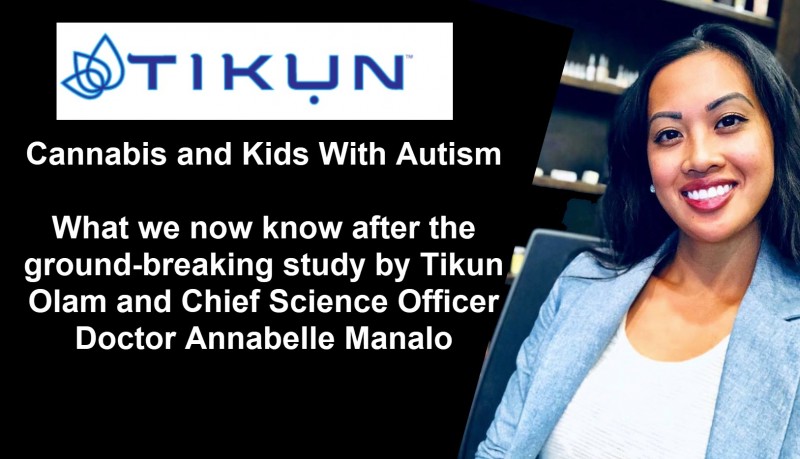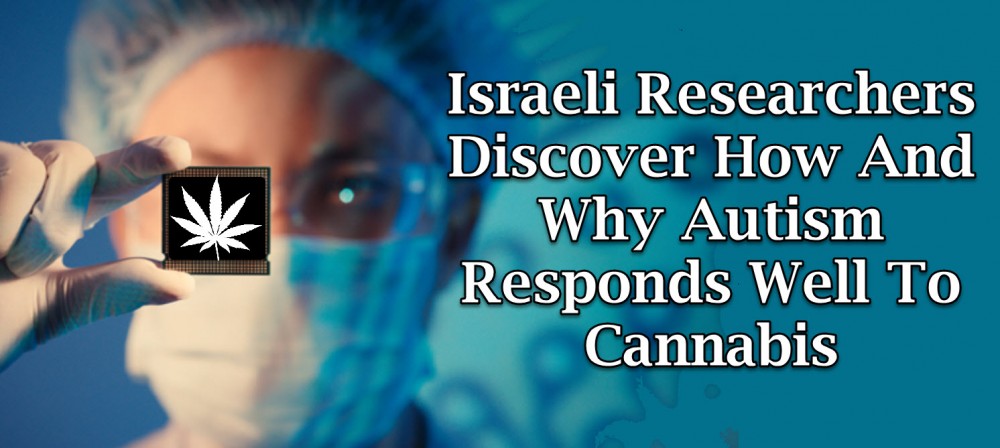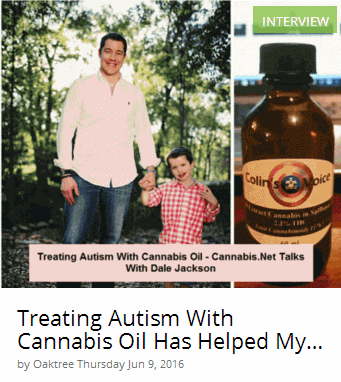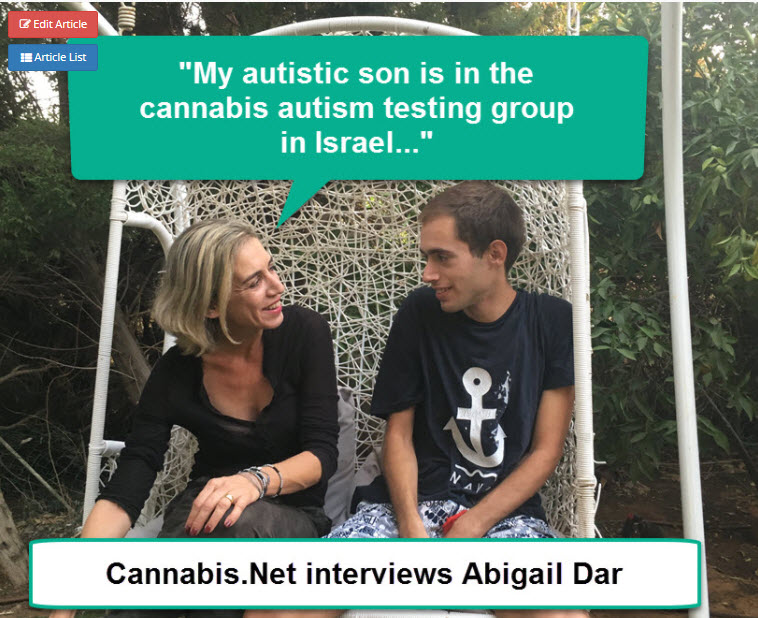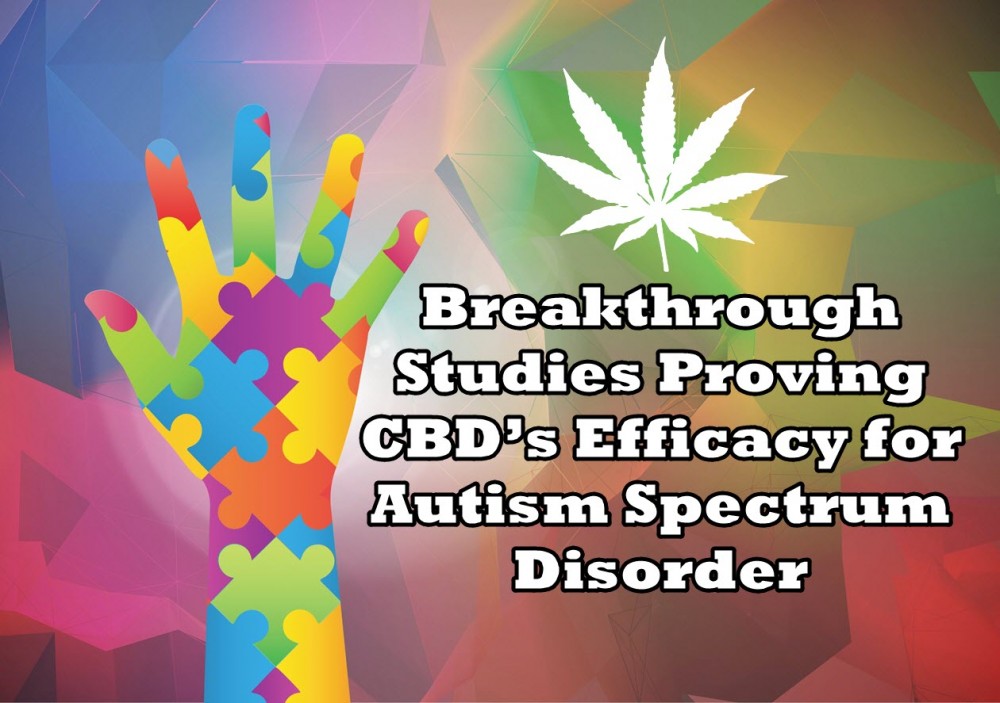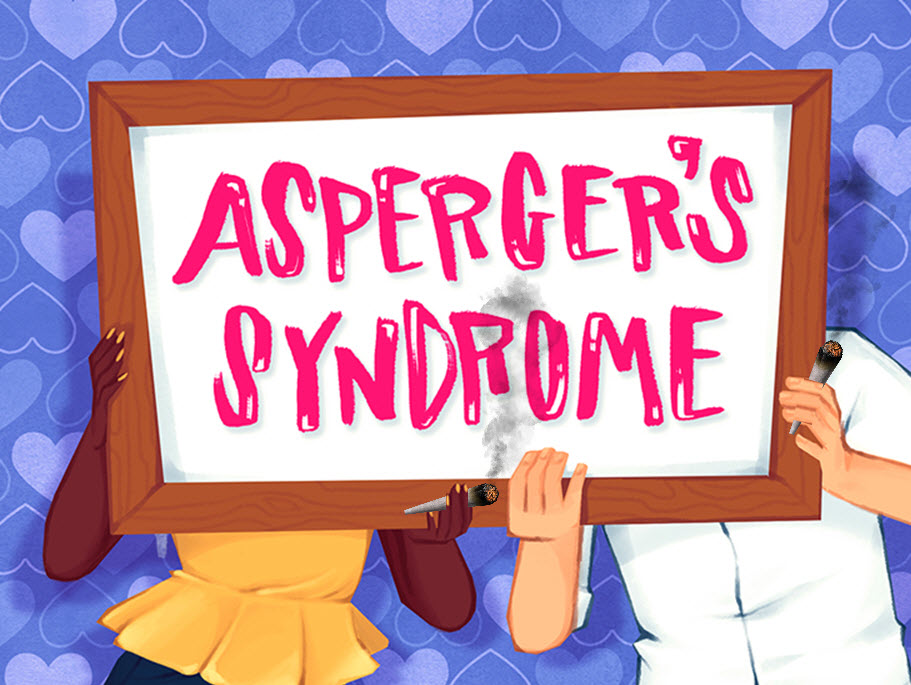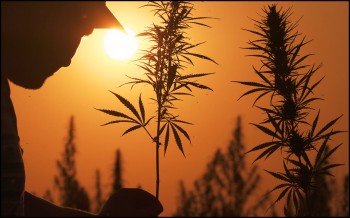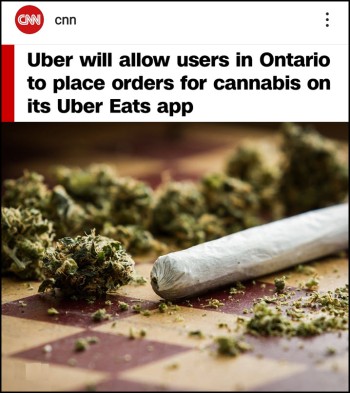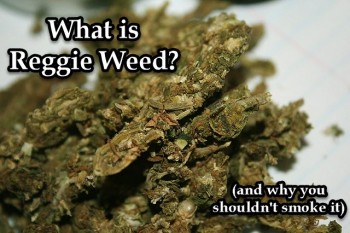Tikun Olam just released the most comprehensive study on cannabis and kids with autism. Cannabis.net sat down with Chief Science Officer of Tikun Olam, Dr. Annabelle Manalo to discuss the new study, what we learned, and where do we go now with cannabis and autism.
Watch and listen here.
Does Cannabis "Cure" Autism? - Listen to Dr. Manalo of Tikun Olam from CannabisNet on Vimeo.
Curt: All right. Welcome everyone. Some groundbreaking news coming out today or yesterday depending on when you're watching this video of a brand new cannabis study dealing with autism in children and we are lucky enough here at Cannabis.net to be talking to the Chief Scientific Officer, Dr. Manalo. How are you today?
Dr. Manalo: I'm good. Thank you for having me. We're really excited about this study and I'm happy to be sharing it with you guys first.
Curt: All right, well the press release just came out. You've done a ton of research. Before we get into the study, give us a little background about how you got to be the Chief Scientific Officer at Tikum Olam. I'm going to mispronounce-
Dr. Manalo: Tikum Olam, Tikum Olam, means repair the world. So I actually have a developmental biology background. I was at Vanderbilt University in Nashville, Tennessee working on a chemotherapy grant when I had my third child, my son. He surprisingly had uncontrollable seizures from birth about 200 a day and he had a stroke somewhere before, around or after birth. Ultimately we just needed to stop these seizures, so we found ourselves in the ICU for a long time. There was no regimen for him and so he had 40% of his brain removed and we just had to pray from that point on that he would be okay but he was not developing.
Dr. Manalo: So at six months old I decided to make him a medicine made out of cannabis. I didn't tell anybody, I didn't tell his doctors because it was illegal at the time in the state of Tennessee and I knew that I was taking a big risk with there not being a lot of research behind this awesome plant. But I made him a medicine and he's two years old today, he has no developmental deficits. He has beaten all odds and he's healthy.
Dr. Manalo: So Tikum Olam and I kind of found each other because we have the same mission. We believe in the plant, but we believe in the medicinal uses first and backing it by science
Curt: Now the study that just came out, we have a lot of followers who are interested in kids with autism. This is the largest study ever done and it was based out of Israel. So could you tell us what makes this study kind of the latest and greatest and what we learned?
Dr. Manalo: Sure. Well, a lot of cannabis studies, especially in children are very small and of course when you have a bigger population then you can get more conclusive data. So 188 patients were followed for two years. They ranged from the age of one to 17, mostly around the age of 12 years old and the patients were given a specific dose of cannabis, which is also kind of special in this industry. We see a lot of papers published and people are seeing relief of their symptoms in a bunch of different conditions and you don't know what they took exactly. There's such variability in the dosing.
Dr. Manalo: So here we have made sure to include that we use our strain Avi-Dekel, which is high in CBD, low in THC. That's always a favorite for kids because obviously CBD is non psychoactive. So it's safe, you don't worry about a kid getting high, right? But the THC has a lot of medicinal benefits as well. So them working together, we were able to see a lot of positive results in a large amount of these children.
Curt: What was the biggest improvement in this 188 children over two years? When you got to the finish line what were you able to kind of give a good nod and say?
Dr. Manalo: Well, I would say two things. The first thing is definitely quality of life. Kids with autism, my own son is at risk for autism and a lot of these kids had seizures prior to getting autism. A lot of these neurological issues go hand in hand. So quality of life is humongous. Kids are able to be more independent, their attitudes, their moods are more positive. Those were obviously the biggest things that parents were happy about. The sleep improved for these children.
Dr. Manalo: But the one thing that really stuck out to me was the ability to get off of some of these concomitant medications that the children were taking, especially the antipsychotic and the depressant medications. A lot of these children were able to significantly reduce the amount that they were taking, which is awesome when you think about neurological health longterm.
Curt: What kind of dosages of cannabis were we looking at during the trial? How much were these kids getting? Was it tinctures, was it milligrams, milliliters? Go ahead.
Dr. Manalo: Yeah. So it was 30 to one. So it was 30% CBD, which turned out to be about 79, anywhere from 60 to 80 milligrams of CBD and about four to one to five milligrams of THC in a dose daily. So that's a pretty high dose, but again, that THC is enough to have somebody feel the psychotropic effects, but that CBD kind of balances it out. It's a really nice high dose to be able to replace medications.
Curt: What would you tell parents that are listening all over the world to this video now who have children on the autism spectrum and kind of want to start and they don't know what to do? They don't even know the first place to look or call. What would be their step one, two, and three?
Dr. Manalo: Well, one thing about Tikum Olam is that we've always been really transparent and have made ourselves available to the patient. So you can find us online, you can find me online. I've really started this journey by talking to other parents because that's where I come from and trying to make myself available. I wish I could just say go to your local doctor, but as parents, you know that that's not a reality.
Dr. Manalo: Just ask a lot of questions. In a lot of states THC is not legalized yet. You could try a high CBD with a very low amount of THC that you get from a hemp derived CBD extract, but give it a shot. Of course, do your research and know where this product was made. Look at the certificate of analysis, be your own doctor. You have to be for your children, but give it a shot. Cannabis is safe if done right. Like I said, there is more and more people that parents are being able to go to now. We're seeing that grow and so that makes me really happy.
Curt: Can parents get the actual product that was used in your study, whether it's Israel or California? Is it available and where?
Dr. Manalo: Yes. So Tikum Olam's product and there are other high CBD low THC, whether that be strains of flower itself or in a tincture oil, there are a lot of those concoctions that are already on the market. Your question is, are they potent enough? Avi-Dekel, which is the strain that was used in this study, we will be in Florida first, soon after California, and other states will follow. Of course state-by-state, everything is different, but those are the places they'll be available first at the top of the year.
Curt: Okay. So Florida, California, and then the domino down.
Dr. Manalo: Yup, Yup. Yup.
Curt: Okay. So the FDA has been very clear about what claims can be made as far as curing things like cancer and autism. So I want you to correct my sentence. Cannabis can cure autism.
Dr. Manalo: Okay. So cannabis is not a cure all for anything. I've never agreed with that. I believe in just like we get disease, it takes a heterogeneous population of a bunch of things to make that disease, I believe in the same thing when it comes to cannabis. It's belief, it's attitude, it's other things that you take. It's environment, it's food, it's supplements, it's all those things. So cannabis is not a cure all.
Dr. Manalo: What cannabis can do is extenuate and promote the self healing process that we already have inside. It could help us get off medications that are detrimental to our longterm health and so in correction of cannabis cures autism, I would say cannabis can extenuate the process of curing autism in a safe and efficient manner. Let me say that again. Cannabis can extenuate the healing process of autism in a safe and efficient manner.
Curt: Should the expectations of parents who are getting started and going down this road, is it no more seizures, a "normal life" off of all other pharma meds, or what is the realistic expectations for parents who are going to start down this road in their child to see?
Dr. Manalo: That's a tough question because every child is different, but one thing that I think it's important for all of us to understand is that longterm cannabis is not a bandaid. Cannabis doesn't just make you feel better. Cannabis is promoting self healing. We have a defense mechanism, a self-repair system within us. We have stem cells within us that are just looking to repair processes that are abnormal. So that's what you have to think of cannabis as doing. A high CBD, low THC Avi-Dekel tincture may work for nine kids but it may not work for the rest.
Dr. Manalo: So it's about being patient and it's about believing and trying different things and working with individuals you can trust and look to for advice. But, again, it's not a bandaid, it works differently in every person and what you're trying to do in a child with any kind of neurological disorder is to promote positive signaling, effective balanced signaling within the brain.
Curt: And for parents who are giving their children cannabis, do you have a preferred way of ingestion? Is it under the sublingual, what if it was a gummy? Is there anything you kind of found that kids respond to and that parents could exact dosage?
Dr. Manalo: Yeah. So when I first started, and I love this because I can relate it to myself, when I first started it was a potent dose and I believe in potent dosing, especially when it comes to CBD because you won't get the psychoactive effects. But I was shooting it through my son's G-tube. When he became a little older and he had learned his taste buds, he didn't want it sublingually. I recommend sublingual because it gets to the bloodstream faster, but I had to start infusing things for my son, putting it in honey sticks, things that he liked, sticking it in a banana. So by the mouth obviously is going to be the safest way. Sublingually if your child will withstand it is the best way to go.
Curt: Yeah. But just based on what you ... I mean, that's gotta be about half a dropper, I would guess if you're talking five milligrams of THC and about 50 of CBD. So that's not even going to be a full with that 50 milliliter or 100 milliliter dropper. So the giving should be relatively quick and easy if you're talking that small amount as a liquid.
Dr. Manalo: Well we can talk about dosing too, and I'll briefly educate you on that. You can have a tincture that has 10,000 milligrams and then you can have one beside it that has 1000 milligrams total in that bottle and these bottles are the same size, right? So if you think about that in a dosing perspective and the dispersion of the medicine within that bottle, a whole dropper of that 10,000 milligrams is gonna be a lot more than the other bottle. So you have to know exactly what's in there to get proper dosing.
Dr. Manalo: For instance, in the CBD that I made it has 3000 milligrams in one bottle so one dropper full is one milliliter, that's a 100 milligram dose. So that can vary based on how the product has been diluted.
Curt: That's good to know because I'm sure parents, if they're going to go sublingual, want it as quick and painless as possible. So you're absolutely right. If you're going to get a higher dosage, less drops real quick. It'll go right in and-
Dr. Manalo: It's about educating yourself and it's about understanding what you're giving your child. Like I said, you have to become your child's own doctor.
Curt: Where can interested parties, parents get a copy of your latest report, the autism and cannabis study?
Dr. Manalo: Well, we will be doing a couple press releases. We will be putting it through scientific research journals. It'll be available through our website TikumOlam.com. Google's a really powerful tool these days as well. So parents can access the study and parents will also have a direction in contacting us if they have any further questions.
Curt: If somebody wanted to ask you a question, I don't want to have a thousand emails show up at your inbox the rest of your life, what's the best way to ping you or asks you a question?
Dr. Manalo: Well, they can reach me through Tikum Olam. There's a contact click there. I also have my own website. It's Dr. Annabelle.com and they can contact me. I will be honest. I do answer most of those emails. I think there may come a time where I won't have the ability to because I'm one human being, but for now I try to reach as many people as possible.
Curt: Excellent. Well congratulations on the study. I appreciate you taking the time out and for those that need more information, as we said, Google. The results in the study have just been released, we'll put up the graphics on this video where the websites you can go to and just thank you very much for your time.
Dr. Manalo: Thank you, Curt. Thanks for having me, and I also want to add, Curt, the paper I think is ... I think our first press release is going to be through BBC. So the paper could be found in connection or in conjunction with BBC.
Curt: All right. Excellent. Thank you for your time. Congratulations on the study and anytime you want to come back to cannabis.net and talk, just let us know.
Dr. Manalo: Okay. Thanks for having me, Curt.
Curt: Thank you.
Largest Cannabis and Autism Study Ever Done on Kids Competed by Tikun Olam and Dr. Annabelle Manalo from CannabisNet on Vimeo.
OTHER STORIES YOU MUST READ...
NEW LINKS ON HOW CANNABIS HELPS AUTISM, CLICK HERE.
OR..
HOW CANNABIS OIL HELPS MY SONS' AUTISM, CLICK HERE.
OR..
MY SON IS IN THE AUTISM ISRAELI STUDY, CLICK HERE.
OR..
CBD FOR AUTISM STUDY GOES VIRAL, READ WHY HERE.
